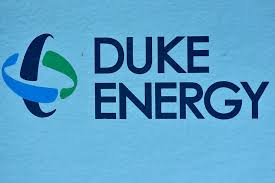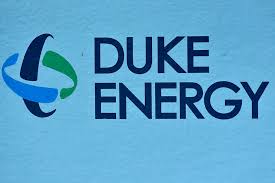
After three years stationed in Guam with the U.S. Navy, Harrison Cochran returned home, uncertain about his future but aware he had a career ahead of him. At 24, he was drawn to trade work or on-the-job training.
Cochran, who served as a welder in the Navy, initially considered a welding program. However, his father and uncle, both low-voltage electricians, encouraged him to explore line work. "They told me that becoming a lineworker was the way to go," he said.
He then discovered a lineworker training program at Cape Fear Community College (CFCC) through the Department of Veterans Affairs, conveniently located near his hometown of Snow Camp, N.C., in Wilmington, N.C. Cochran enrolled in the 10-week program, recognizing it as a pathway to a stable career with a competitive starting salary at a fraction of the cost of a four-year degree.
"A few guys from my high school had gone through the same program," he mentioned, "and they had all good things to say about it. When I got there, I found they were right."
Lineworker careers are in high demand, projected to grow by 8.5% by 2026, with an estimated 21,500 job openings in 2024 alone, according to labor statistics. Duke Energy recruits lineworkers at various career stages, from apprentices to experienced journeymen. Interested individuals can check current openings or find training opportunities for a career in line work on their website.
Cochran secured a job at Duke Energy after graduating from CFCC's electrical lineworker training program in June 2023. He now works with a team of experienced lineworkers, learning to troubleshoot power outages and make necessary repairs to ensure customer service continuity.
"[Harrison’s] leadership qualities stood out," noted Seth Caison, Cochran’s supervisor at Duke Energy’s Fairfax Operations Center in Greensboro, N.C. "He showed initiative and presented ideas that benefited the team, not just himself."
Cochran's experience is not unique. In 2023, 41% of Duke Energy’s entry-level apprentice lineworker hires were graduates from the company's partner community colleges. Many line apprentices start with nearly $50,000 in salary plus benefits.
"With much of the current workforce nearing retirement, there's a critical need for highly skilled workers," said Isabel Nieto, manager of workforce development at Duke Energy. "We’ve been creative about investing in new talent, relying on our community colleges and other organizations to ensure a steady pipeline of workers to fill these vital roles at Duke Energy and nationwide."
CFCC’s industry-recognized program is one of over 20 programs that Duke Energy has supported across the Carolinas, Florida, Ohio, Indiana, and Kentucky. "These colleges are deeply connected to their communities," Nieto said. "They expand our reach to individuals who might not have considered this career and help deliver a skilled, diverse pool of potential lineworkers."
Since its inception, CFCC has graduated nearly 900 students from the program, partnering with over 15 employers.
"We have exceptional instructors with decades of experience," said Emily Holt, director of Workforce Readiness Programs at CFCC. "Each instructor has 30 to 40 years of industry experience."
In 2018, the Duke Energy Foundation provided an initial startup grant of $200,000, and Duke Energy has continued to invest annually through scholarships, smaller grants, and marketing. Holt emphasized that Duke Energy's name recognition is a key factor in the program's success. "Many students are drawn to work at Duke Energy," she said. "The company has a stellar reputation, and students often hear that it’s a great place to work. Knowing that Duke is a major partner excites them and enhances the quality of our program."
CFCC’s lineworker training program also includes a commercial driver’s license (CDL), allowing students to operate utility trucks. "Many schools don’t offer CDL training, and students have to obtain it on their own," Cochran said. "So that was a great benefit. It reduces stress by providing the CDL during the program."
The proximity of North Carolina military bases like Fort Liberty (formerly Fort Bragg) in Fayetteville and Camp Lejeune in Jacksonville is an added advantage for companies recruiting lineworkers in Wilmington. "The focus on safety, teamwork, reliability, and responsibility makes these roles very appealing and suitable for former military personnel," said Isabel Nieto, manager of workforce development at Duke Energy. "They possess the qualities needed for success."
Seth Caison, Cochran's supervisor at Duke Energy’s Fairfax Operations Center in Greensboro, N.C., agrees. "With Harrison’s background as a Navy welder, he came in exactly as you would hope every new hire would. He is always on top of the work, figuring things out and learning. He has a promising future with the company."
Cochran shares this optimism. "I’ve been really fortunate to find something I enjoy."
Cochran, who served as a welder in the Navy, initially considered a welding program. However, his father and uncle, both low-voltage electricians, encouraged him to explore line work. "They told me that becoming a lineworker was the way to go," he said.
He then discovered a lineworker training program at Cape Fear Community College (CFCC) through the Department of Veterans Affairs, conveniently located near his hometown of Snow Camp, N.C., in Wilmington, N.C. Cochran enrolled in the 10-week program, recognizing it as a pathway to a stable career with a competitive starting salary at a fraction of the cost of a four-year degree.
"A few guys from my high school had gone through the same program," he mentioned, "and they had all good things to say about it. When I got there, I found they were right."
Lineworker careers are in high demand, projected to grow by 8.5% by 2026, with an estimated 21,500 job openings in 2024 alone, according to labor statistics. Duke Energy recruits lineworkers at various career stages, from apprentices to experienced journeymen. Interested individuals can check current openings or find training opportunities for a career in line work on their website.
Cochran secured a job at Duke Energy after graduating from CFCC's electrical lineworker training program in June 2023. He now works with a team of experienced lineworkers, learning to troubleshoot power outages and make necessary repairs to ensure customer service continuity.
"[Harrison’s] leadership qualities stood out," noted Seth Caison, Cochran’s supervisor at Duke Energy’s Fairfax Operations Center in Greensboro, N.C. "He showed initiative and presented ideas that benefited the team, not just himself."
Cochran's experience is not unique. In 2023, 41% of Duke Energy’s entry-level apprentice lineworker hires were graduates from the company's partner community colleges. Many line apprentices start with nearly $50,000 in salary plus benefits.
"With much of the current workforce nearing retirement, there's a critical need for highly skilled workers," said Isabel Nieto, manager of workforce development at Duke Energy. "We’ve been creative about investing in new talent, relying on our community colleges and other organizations to ensure a steady pipeline of workers to fill these vital roles at Duke Energy and nationwide."
CFCC’s industry-recognized program is one of over 20 programs that Duke Energy has supported across the Carolinas, Florida, Ohio, Indiana, and Kentucky. "These colleges are deeply connected to their communities," Nieto said. "They expand our reach to individuals who might not have considered this career and help deliver a skilled, diverse pool of potential lineworkers."
Since its inception, CFCC has graduated nearly 900 students from the program, partnering with over 15 employers.
"We have exceptional instructors with decades of experience," said Emily Holt, director of Workforce Readiness Programs at CFCC. "Each instructor has 30 to 40 years of industry experience."
In 2018, the Duke Energy Foundation provided an initial startup grant of $200,000, and Duke Energy has continued to invest annually through scholarships, smaller grants, and marketing. Holt emphasized that Duke Energy's name recognition is a key factor in the program's success. "Many students are drawn to work at Duke Energy," she said. "The company has a stellar reputation, and students often hear that it’s a great place to work. Knowing that Duke is a major partner excites them and enhances the quality of our program."
CFCC’s lineworker training program also includes a commercial driver’s license (CDL), allowing students to operate utility trucks. "Many schools don’t offer CDL training, and students have to obtain it on their own," Cochran said. "So that was a great benefit. It reduces stress by providing the CDL during the program."
The proximity of North Carolina military bases like Fort Liberty (formerly Fort Bragg) in Fayetteville and Camp Lejeune in Jacksonville is an added advantage for companies recruiting lineworkers in Wilmington. "The focus on safety, teamwork, reliability, and responsibility makes these roles very appealing and suitable for former military personnel," said Isabel Nieto, manager of workforce development at Duke Energy. "They possess the qualities needed for success."
Seth Caison, Cochran's supervisor at Duke Energy’s Fairfax Operations Center in Greensboro, N.C., agrees. "With Harrison’s background as a Navy welder, he came in exactly as you would hope every new hire would. He is always on top of the work, figuring things out and learning. He has a promising future with the company."
Cochran shares this optimism. "I’ve been really fortunate to find something I enjoy."


 Veteran Success: CFCC Lineworker Training Program with Duke Energy Partnership
Veteran Success: CFCC Lineworker Training Program with Duke Energy Partnership




 Companies
Companies